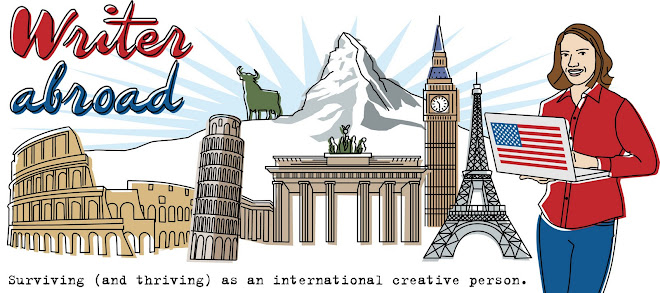Writer
Abroad is working on a travel book about Switzerland and it often makes her
wonder—is writing this making her attempt at repatriation easier or harder? On
one hand, it is therapeutic to write about the country she spent the
last eight years living in. It keeps her connection to the country strong and
will help maintain the author platform she built there. But on the other hand,
it’s terrible to write about hiking around the longest glacier in Europe and be
stuck in the flat American Midwest where no one hikes, let alone walks.
 |
| Missing the old country these days…especially in spin class. |
Writing this book is actually giving her strange side effects. She is physically aching for the great outdoors. And she didn't know it was possible to actually do that. It was especially acute this morning, when she went from writing about snowshoeing in the Alps to an indoor spin class--where riding up a hill involved a small click to the right of the bike's tension knob, instead of the winding castle-topped hill she used to ride up every week when she lived in Baden.
In any case,
this travel book (one of four book projects at the moment—yes, Writer Abroad is
crazy) is a kind of love letter to Switzerland since it includes over 100
things to do and places to go that Writer Abroad experienced as extraordinarily
beautiful—or just very typically Swiss—during her many years wandering around
with her GA, or country-wide train pass. It’s a book she hopes will inspire
others who are in the country for a few days—years—or even a lifetime—to see
Switzerland in new ways. She's learning to, without even being there.
If you're a re-pat, does it help you to write about your "old" country?
